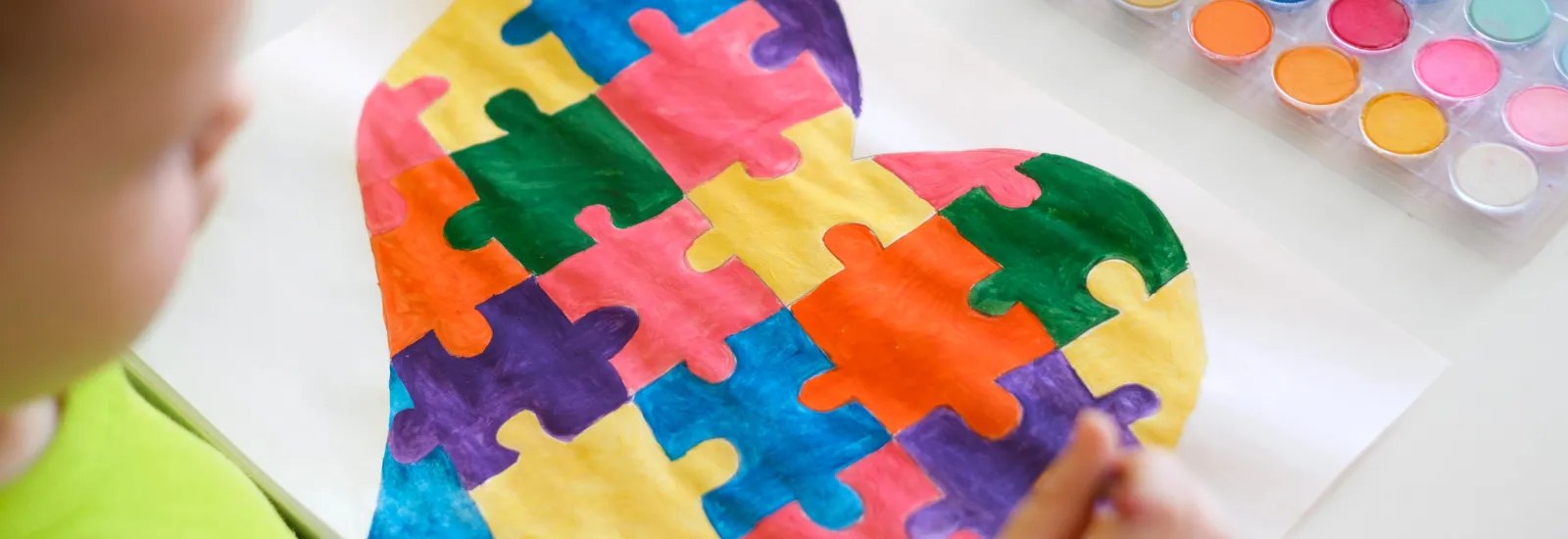
Celebrating people with autism
What is autism?
ASD impacts how the
brain works. It begins to develop before age 3, but many people with autism are
not diagnosed until much later in life.
Autism is a lifelong
condition, but symptoms may improve over time. The ways people with ASD
communicate, learn, behave, and interact are often different from most people.
For example, autistic children may:
- Avoid eye contact
- Be disinterested in playing with other children
- Flap their hands or rock their bodies back and forth, also called stimming
- Get upset by small changes
- Have unusual reactions to sounds, tastes, and smells
- Line up their toys or play with a toy in only one way
- Repeat the same word or phrase over and over
Even though people with
autism face challenges, they can live full and happy lives. Having people
around them who are supportive and accepting can help children with ASD learn
and thrive.
What causes autism?
We do not know all the
causes of autism, but people of every sex, race, ethnicity, and socio-economic
class can have the disorder. Boys are more likely to be diagnosed with ASD than
girls. Autism often runs in families, but the exact way it is passed down isn't
known. A combination of factors is likely involved.
Risk factors that can
make someone more likely to have autism include:
- Being born to older parents
- Being exposed to the prescription drugs valproic acid and thalidomide during pregnancy
- Having a sibling who has autism
- Having certain genetic or chromosomal conditions, such as tuberous sclerosis or fragile X syndrome
Some people worry about
a connection between vaccines and autism, but research shows vaccines do not
cause autism.
How is autism diagnosed?
Parents and caregivers
can monitor children for certain developmental milestones — not meeting one
or more of those milestones or meeting a milestone and then losing the skill
later could indicate autism.
Medical providers may
perform a developmental screening during well-child visits. These take a closer
look at a child's development through research-based checklists or
questionnaires. Another qualified professional, such as an early childhood
educator, may also perform developmental screenings.
If the family or the
provider has concerns, a formal developmental evaluation may be ordered. These evaluations are done by specialists, and the care team may include a psychologist,
occupational therapist, speech-language pathologist, or developmental
pediatrician. They may look at all areas of development or focus on just one or
two areas.
If ASD is suspected, a
clinician may run medical tests to rule out other conditions. However, there is
no medical test for ASD. Instead, providers often diagnose autism by looking at
the collection of information gathered from screenings and evaluations to see
if a child meets the criteria for ASD.
Interventions for autistic children
It's important children with ASD get early intervention services as early as possible. Services may include occupational therapy, speech-language pathology, or educational services. Early intervention sets a child up for success.
Learn more about how early intervention can help by contacting Reid Health Pediatric Therapy.

